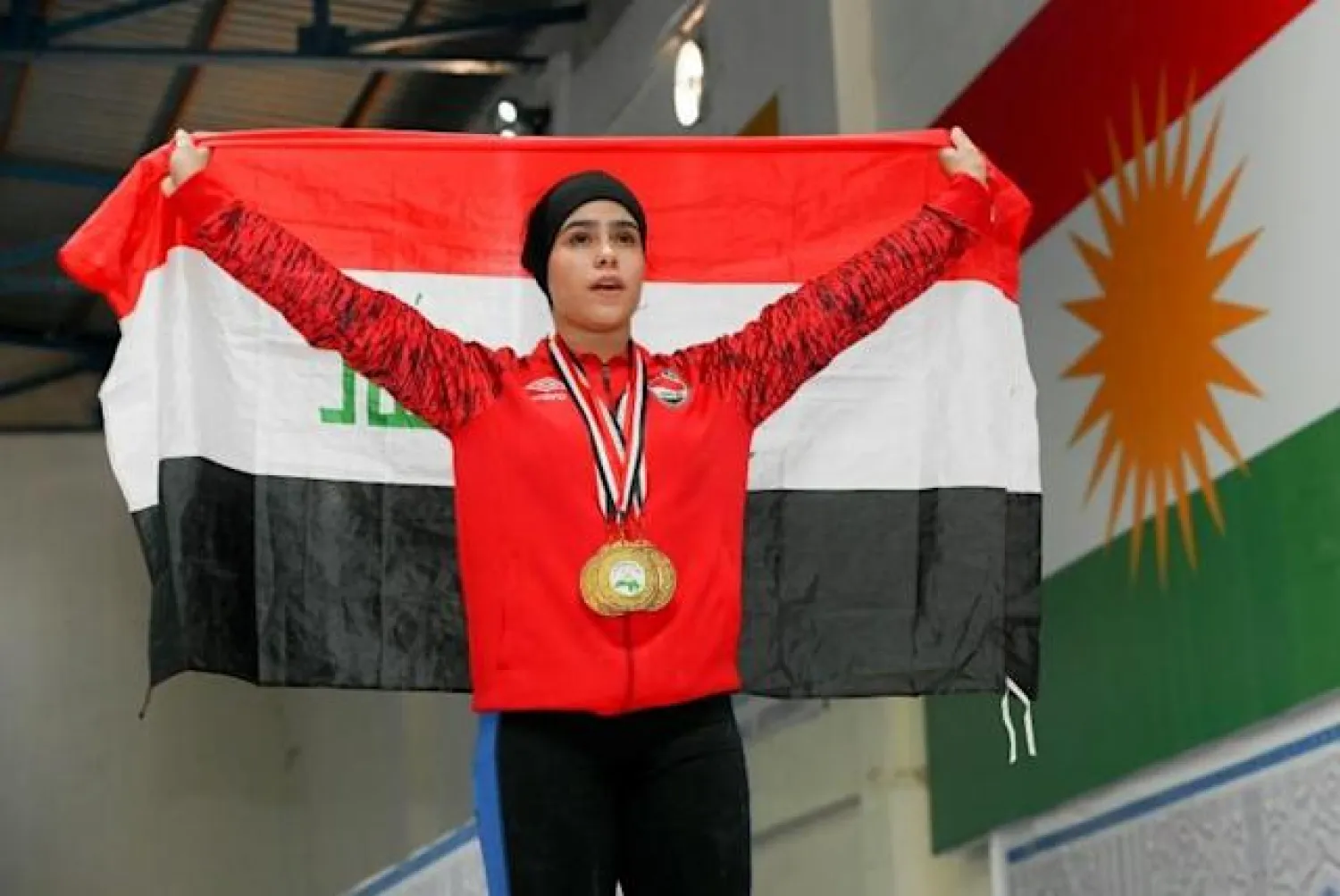In Iraq's autonomous Kurdistan region, sisters Ines, Israa and Oshin Muhsin have inherited a hefty mantle from their late father, using it to take their country to weightlifting glory.
"We want to write the history of women's sports and preserve our father's" memory, Ines told AFP.
At just 20, she already has six gold medals under her belt, and along with her sisters has helped place Iraq squarely on the map of Middle East weightlifting.
The regional capital Erbil hosted a championship in December that brought together 14 Arab countries including Egypt and Saudi Arabia.
The Iraqi women's national team -- made up of 15 athletes, eight of them Kurdish -- clinched the top spot, with nine gold medals, one silver and one bronze.
Ines and her sisters, all in their 20s, have been practicing weightlifting for a decade, coached mainly by their father, who died last year of Covid-19 complications.
At her club's modest gym in Erbil, Ines gets ready to lift a 30-kilo (66 pounds) bar, raising it high above her head before letting the weights crash to the floor.
"We are already thinking of international competitions and qualification for the 2024 Paris Olympics," Ines said, adding that the road to the Games would be "complicated".
The trio -- part of a generation born after their region first gained de facto autonomy in 1991 -- need a translator to communicate with their fellow Iraqi teammates, as they only speak Kurdish.
Their bilingual mother does the job for local competitions, while another club staff member takes up the baton for trips further afield.
Sister Israa, a three-time gold medalist, said she dedicated her achievements to her late father.
"When he was young, he was an athlete, then he became a coach. It is thanks to him that I reached this level," the 22-year-old said.
"Before he passed away, he told me: 'if I am no longer there, I want you to continue and to participate in competitions, to become famous and win medals'," she added.
Women's sports have developed at a sluggish pace across much of conservative Iraq, which has struggled through decades of conflict.
But the Kurdistan region was spared the brunt of the violence and destruction, and its infrastructure, facilities and government funding have paved the way for a boom in professional women's sports.
After the national team's success at the Arab championship, Kurdish regional President Nechirvan Barzani received weightlifters from Arbil to congratulate them.
The club pays its athletes $150 a month, and covers their equipment and competition expenses.
Little such support exists elsewhere in the country, where despite subsidies many see the youth and sports ministry's budget as largely symbolic.
The Kurdistan region's "climate of freedom" for young athletes and development of sports infrastructure "has contributed to the blossoming of women's sports", said Jazair al-Sahlani, adviser to Iraq's Olympic Committee.
Wajed Wadi, one of the Arbil weightlifting coaches, noted the importance of the assistance.
"With support and the appropriate environment, a promising, ambitious athlete can achieve something significant," he said.
"That's what happened in the Arab championship -- our athletes captured all the attention."









